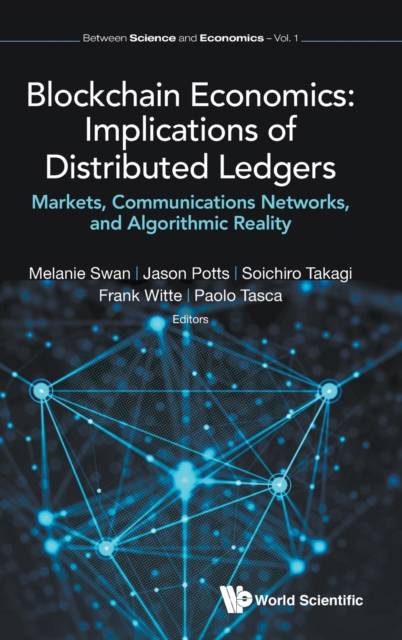
- Afhalen na 1 uur in een winkel met voorraad
- Gratis thuislevering in België vanaf € 30
- Ruim aanbod met 7 miljoen producten
- Afhalen na 1 uur in een winkel met voorraad
- Gratis thuislevering in België vanaf € 30
- Ruim aanbod met 7 miljoen producten
Zoeken
Blockchain Economics: Implications of Distributed Ledgers - Markets, Communications Networks, and Algorithmic Reality
€ 149,95
+ 299 punten
Omschrijving
This practical introduction explains the field of Blockchain Economics, the economic models emerging with the implementation of distributed ledger technology. These models are characterized by three factors: open platform business models, cryptotoken money supplies, and Initial Coin Offerings as a new and official form of financing. The book covers a variety of approaches from a business and academic perspective, ranging from financial theory, complexity, and open innovation networks to behavioral economics, self-determination theory, public policy, and financial inclusion.Unlike existing titles, this book draws on worldwide blockchain industry experts to define the new discipline of Blockchain Economics and provide novel theoretical and conceptual resources for the future of this fast-developing economy. The primer also highlights the wider theme of blockchain as an institutional technology, in that many value transfer interactions might be shifted to automated networks, decreasing the number of human-operated institutions.As well as stimulating further research, and implementation by business innovators and public policy strategists, the book can also be used as a foundational textbook in courses on Blockchain Economics.
Specificaties
Betrokkenen
- Uitgeverij:
Inhoud
- Aantal bladzijden:
- 320
- Taal:
- Engels
- Reeks:
- Reeksnummer:
- nr. 1
Eigenschappen
- Productcode (EAN):
- 9781786346384
- Verschijningsdatum:
- 1/02/2019
- Uitvoering:
- Hardcover
- Formaat:
- Genaaid
- Afmetingen:
- 152 mm x 229 mm
- Gewicht:
- 594 g

Alleen bij Standaard Boekhandel
+ 299 punten op je klantenkaart van Standaard Boekhandel
Beoordelingen
We publiceren alleen reviews die voldoen aan de voorwaarden voor reviews. Bekijk onze voorwaarden voor reviews.










